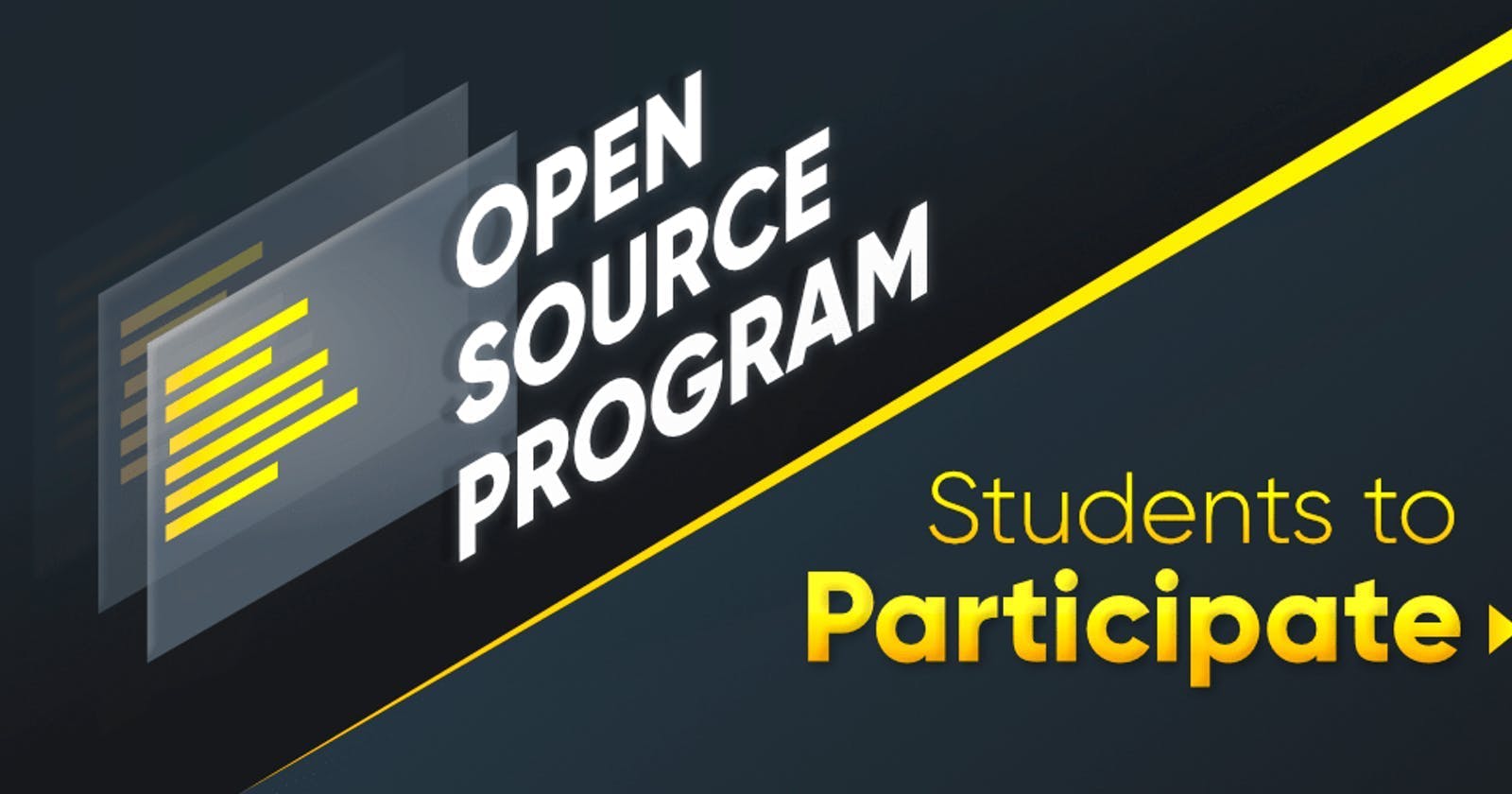Contributing to open source is a really great way to get real-world software development and other domain experience from the comfort of your home even if you’re a beginner and don’t have a job in the industry. You don’t really need to be an expert to get started with open source and you’re going to get all these benefits of what it’s like to work in a team, collaborate with other people and work on a large codebase. One can test their skills, gain knowledge, and bond with the community in order to produce quality code that helps people around the world.
Here, in this article, we’ll discuss various programs that are available for university students to get involved in open source. So let’s get started.
1- Google Summer of Code (GSoC):
Google Summer of Code program is a program started by Google and has completed 16 years. It is a program that aims to promote open-source software development among university students. There are a few organizations and these organizations have mentors. First, the organizations apply to Google and after the organizations are selected then the students apply to the organizations. Bear in mind that you are not an employee of Google or even not an intern at Google. You’re working with that organization that you applied to or got selected in. It is a paid program with a stipend of 1500 USD.
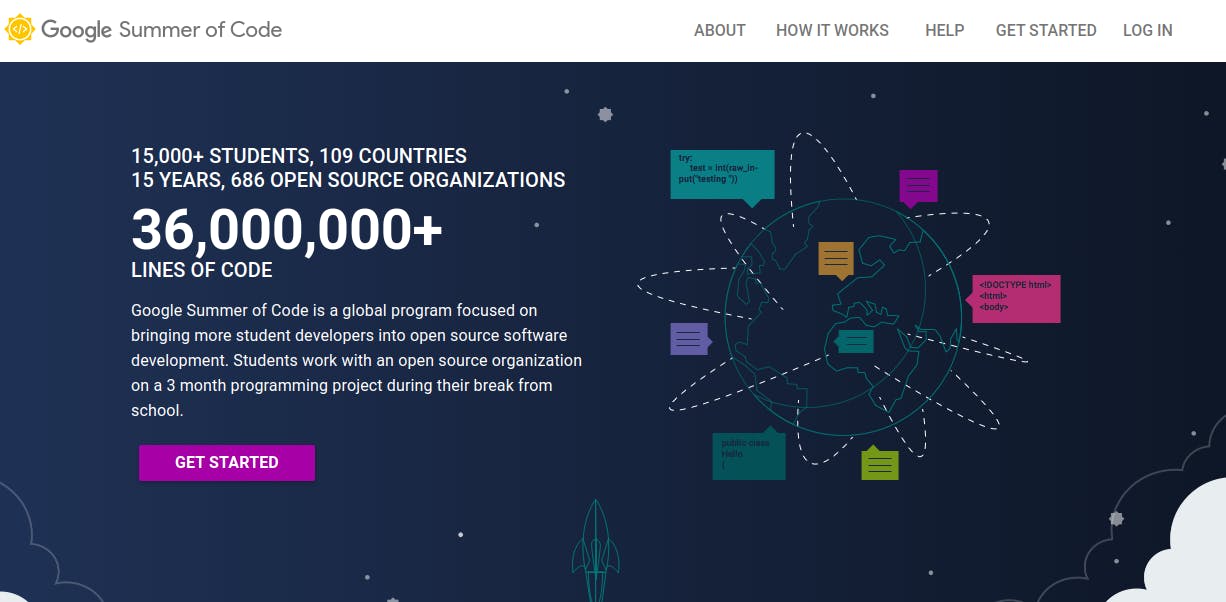
2- MLH Fellowship:
Major League Hacking (MLH), founded in 2013, is a global community for student developers. MLH recently launched a program known as MLH fellowship which is a 12-week remote program where students collaborate on Open Source projects that align their personal interests with the general requirements of the industry and students can participate from their homes. It has mainly three tracks – Explorer, Open Source, and Externship. Here you will gain those skills that you require to be a successful engineer like writing good documentation, open-source best practices, communication, etc. Also, make sure you meet the eligibility criteria before applying for the program.
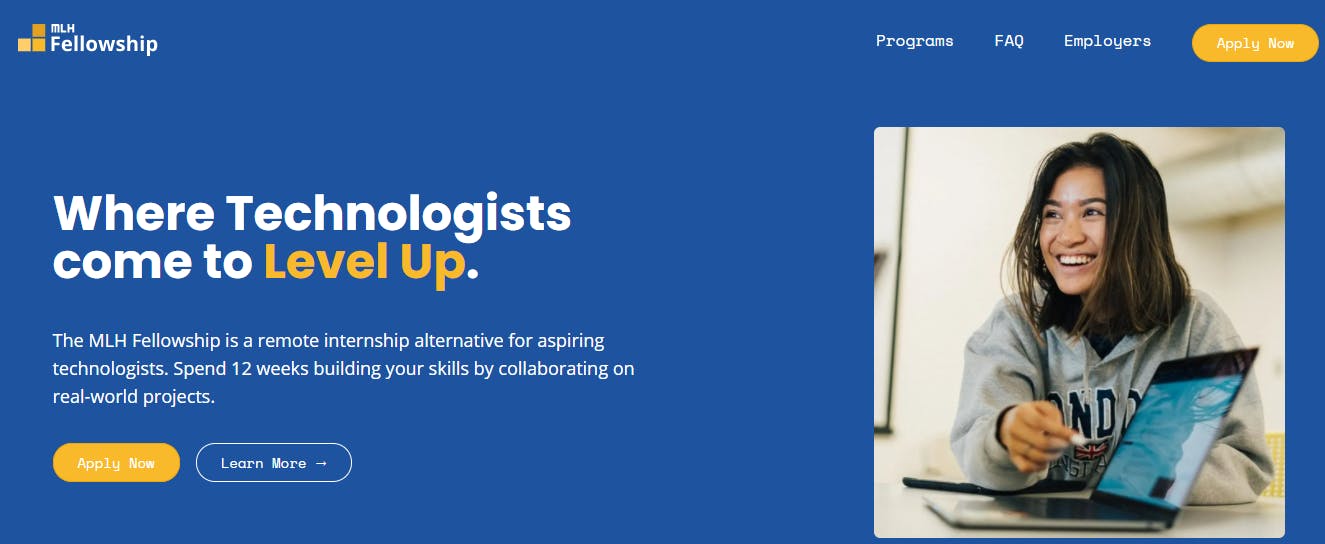
3- Google Season of Docs (GSoD):
One thing that an open-source project cannot get enough of is good documentation. However, Google Season of Docs is a new program by Google where technical writers and open source organizations come together and work on open source projects. The technical writers write documentation for open source organizations and also get paid by Google. It is a worthwhile platform for students to learn from industry experts and to work on open-source projects. Also, you need to remember that you must be aged 18 or more at the time of registration to become eligible for Google Season of Docs.
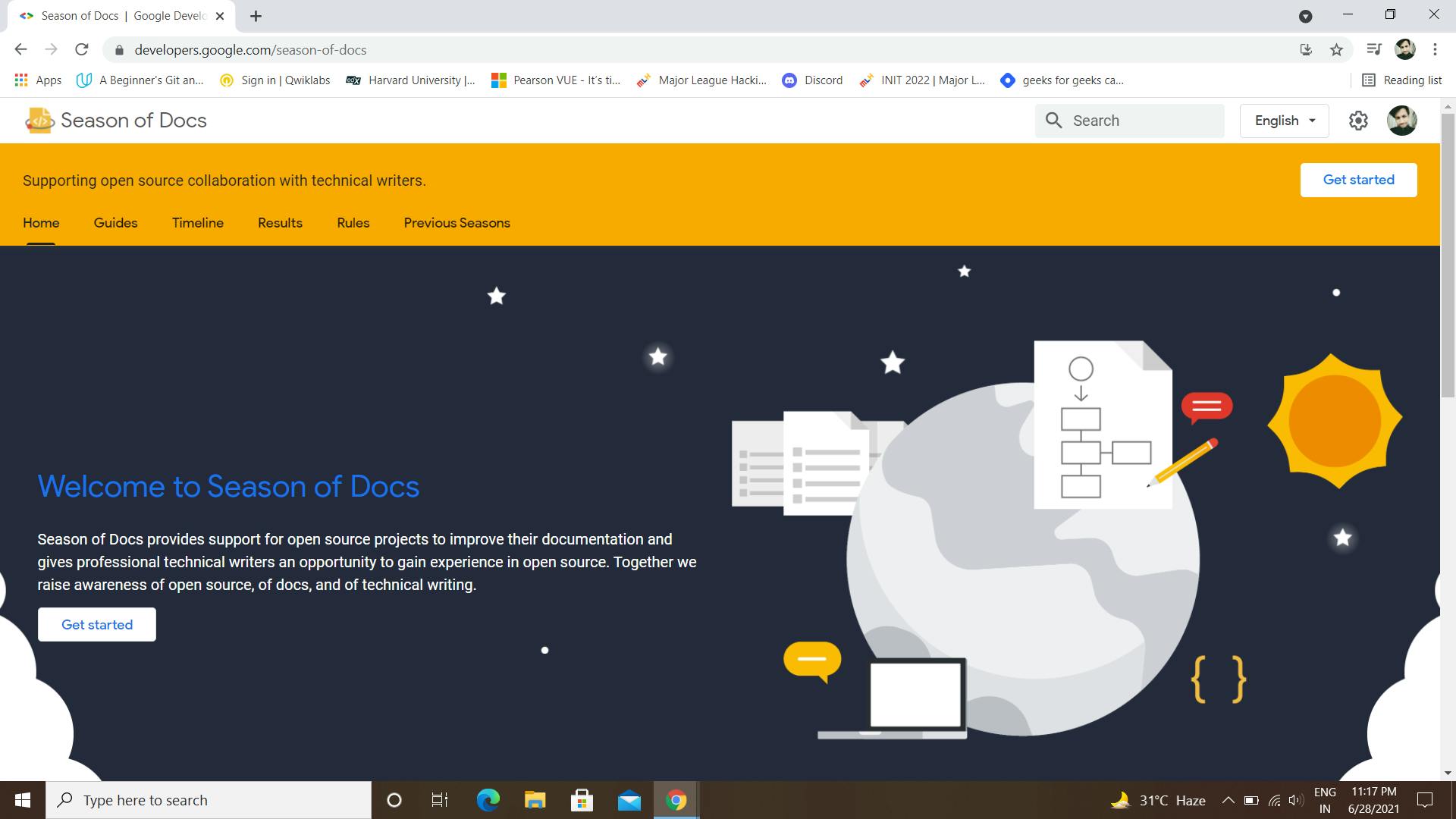
4- Outreachy:
The Outreachy is also a really great program for students that aims to support diversity in open source. It is sort of a remote internship of 3 months and only a handful number of students are selected across the world. The Outreachy internship projects focus on programming, documentation, project marketing, etc. During the application process, you need to show some genuine eagerness that why you want to be an Outreachy intern and in turn, what you’re going to accomplish, and then how you plan to promote diversity and all sorts of things. It is a paid internship in which you are paid an amount of 5500 USD.
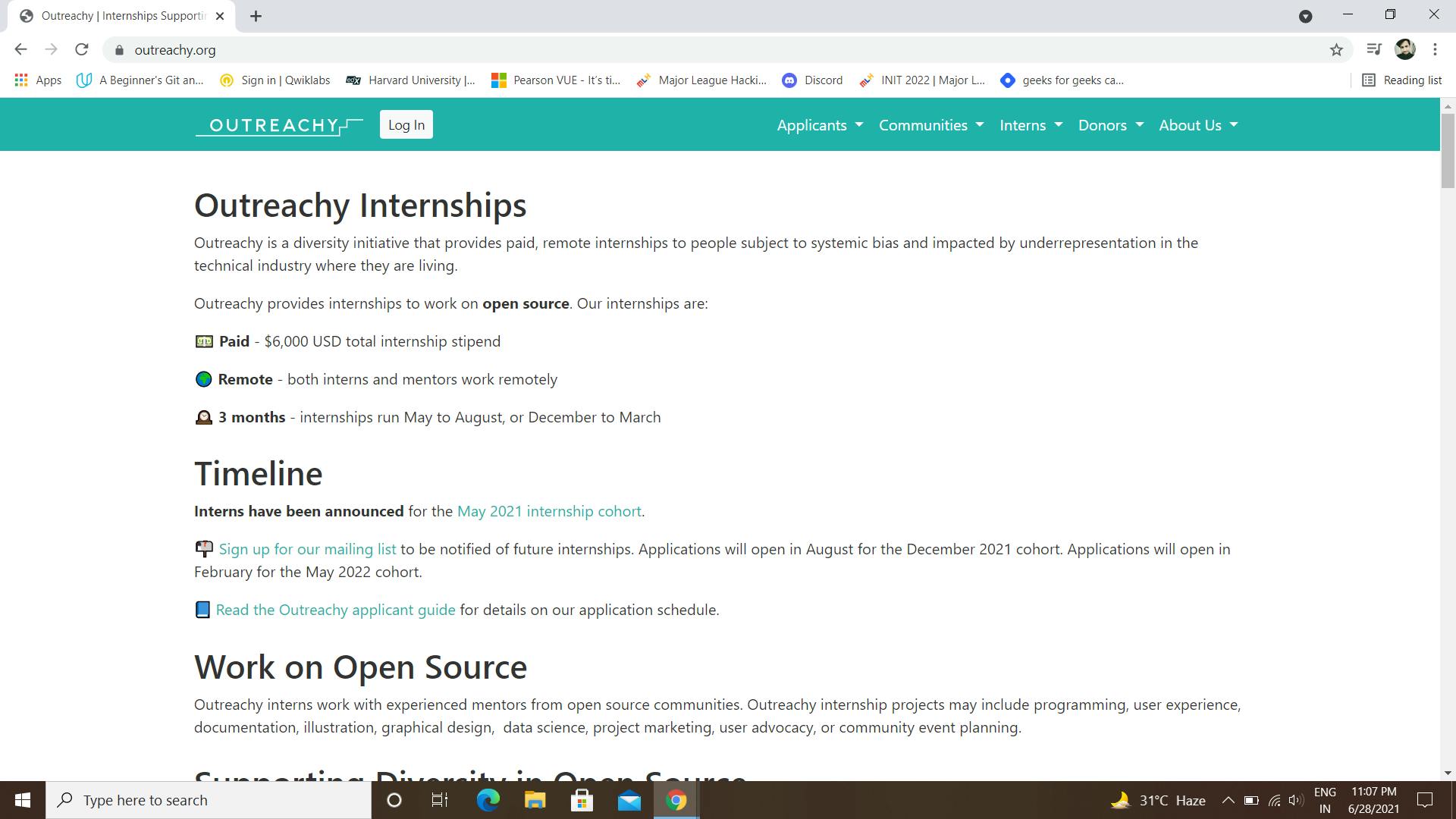
5- Season of KDE:
The Season of KDE, hosted by the KDE community, is an outreach program for all individuals across the world. KDE is an international free software community that develops free and open-source software and you can contribute to KDE through the Season of KDE program. The participants of the Season of KDE program have not only contributed new features, but they are also responsible for developing KDE Continuous Integration System, ported KDE Applications, documentation, and various other things. Also, it is somehow similar to another prestigious program, Google Summer of Code.
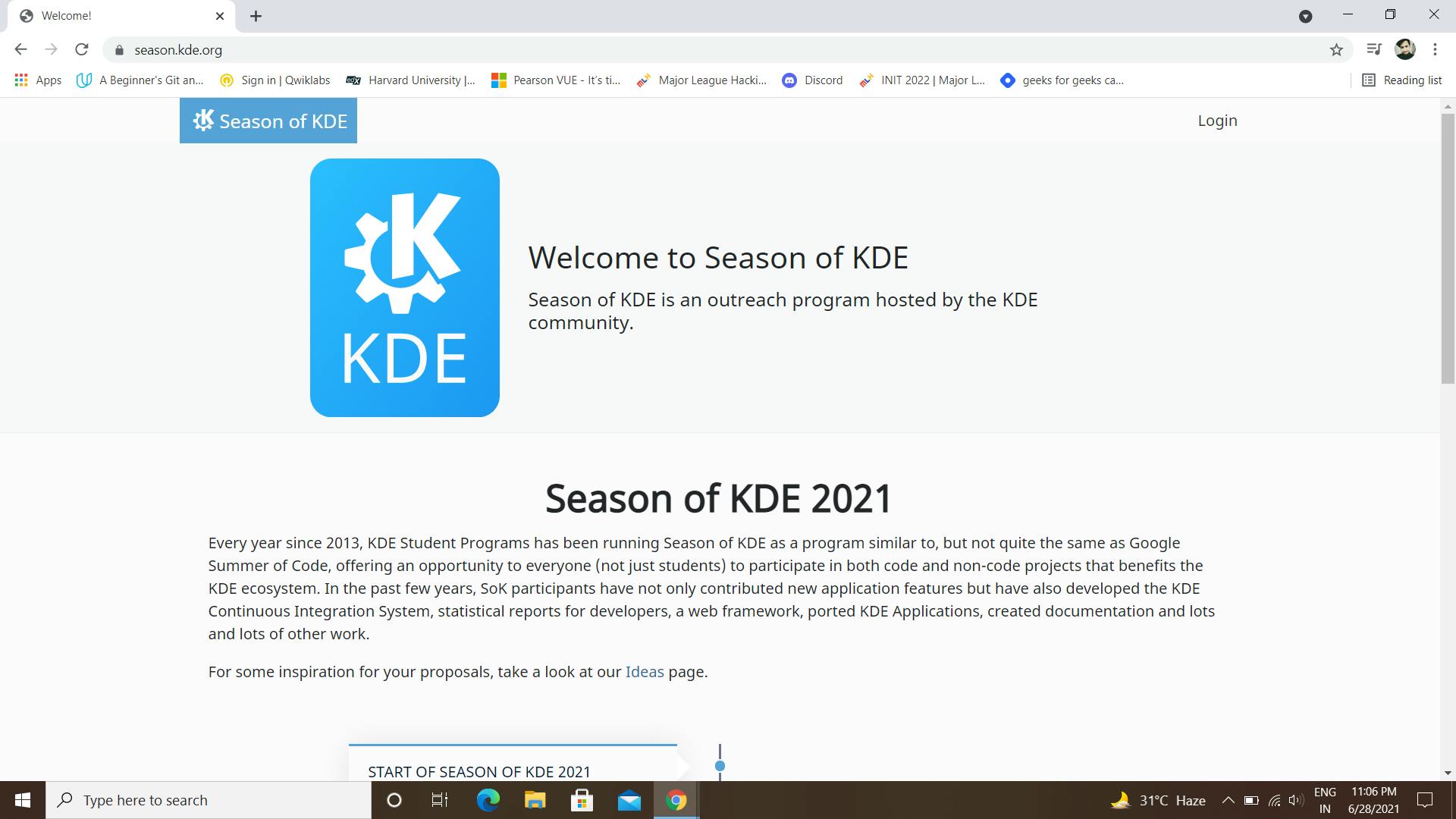
6- Linux Foundation (LFN) Mentorship Program:
The LF Networking (LFN) intern/mentorship program is aimed at creating a structured hands-on learning opportunity for new developers who may otherwise lack the opportunity to gain exposure to open source software development and entry to the LFN projects' technical communities. It also provides a more defined path for LFN projects to connect with the next generation of student developers to inject more talent into their developer base. Each mentee will apply and be matched with a mentor or mentors who are active developers and technologists contributing to the industry's leading open-source networking projects such as ONAP, OPNFV, OpenDaylight, FD.io. Each mentee will work remotely from his/her location of choice. Regular evaluation and feedback will be provided. Mentees who have done outstanding work may have the opportunity to travel to an LFN conference/event to meet their peers and mentors face-to-face and to present their work to the broader community.
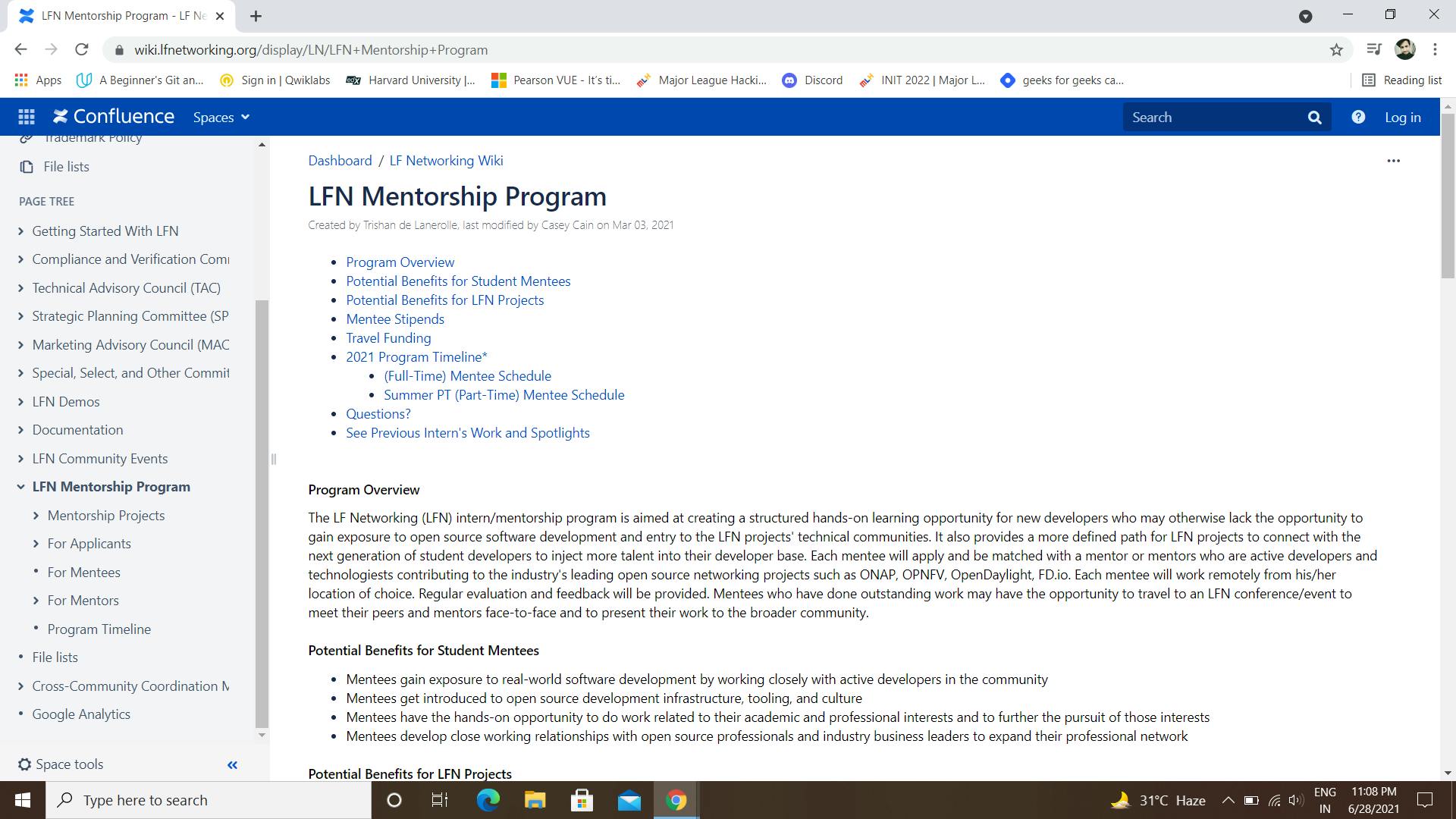
7- Open Mainframe Project Mentorship Program:
Open Mainframe Project also has its own open-source program and the mentees will be able to expand their knowledge on the mainframe technology. So, if you’re interested in the mainframe and all these things you can definitely check that out. You’ll also help in contributing to open source projects which will make it easier for infrastructure applications to run on the mainframe. So, it is an overwhelming fact that the application or the code that you’re writing is actually being used by a lot of people.
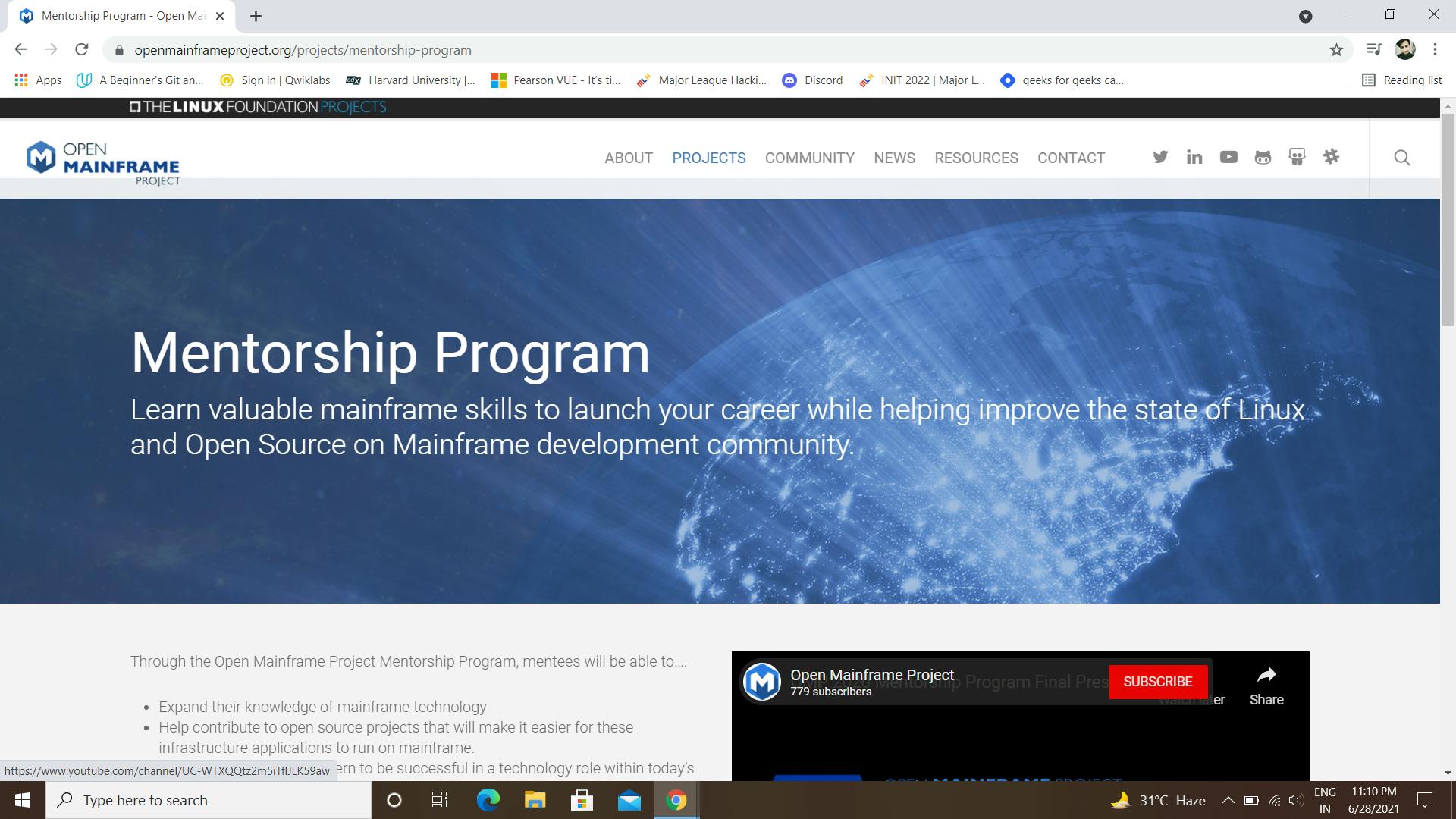
8- Linux Kernel Mentorship Program:
The Linux Kernel Mentorship Program offers a structured remote learning opportunity to people who are aspiring to be Linux kernel developers. People who have experience as a Linux kernel developer mentor the volunteering mentees and help them in becoming a contributor to the Linux kernel. If you want to become a contributor then this is the program you can apply to. They have some courses which you can complete first and get involved in it. This program is also supported by the Community Bridge.
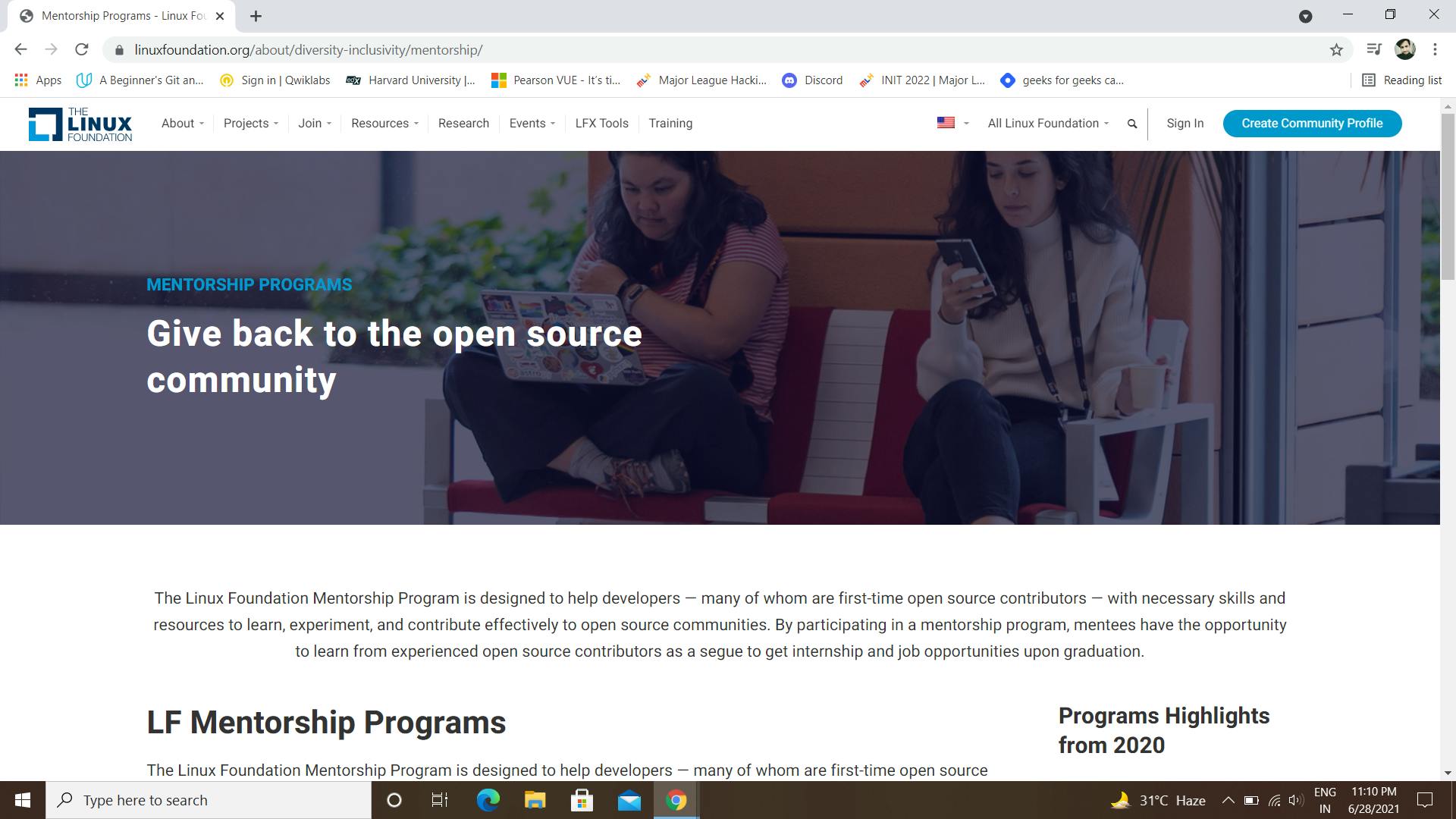
9- Redox OS Summer of Code:
Redox is a general-purpose operating system written in pure Rust. The Redox OS Summer of Code is the primary use of donations to the Redox OS project. Here, the students who have already demonstrated a desire and ability to contribute to Redox OS get selected.
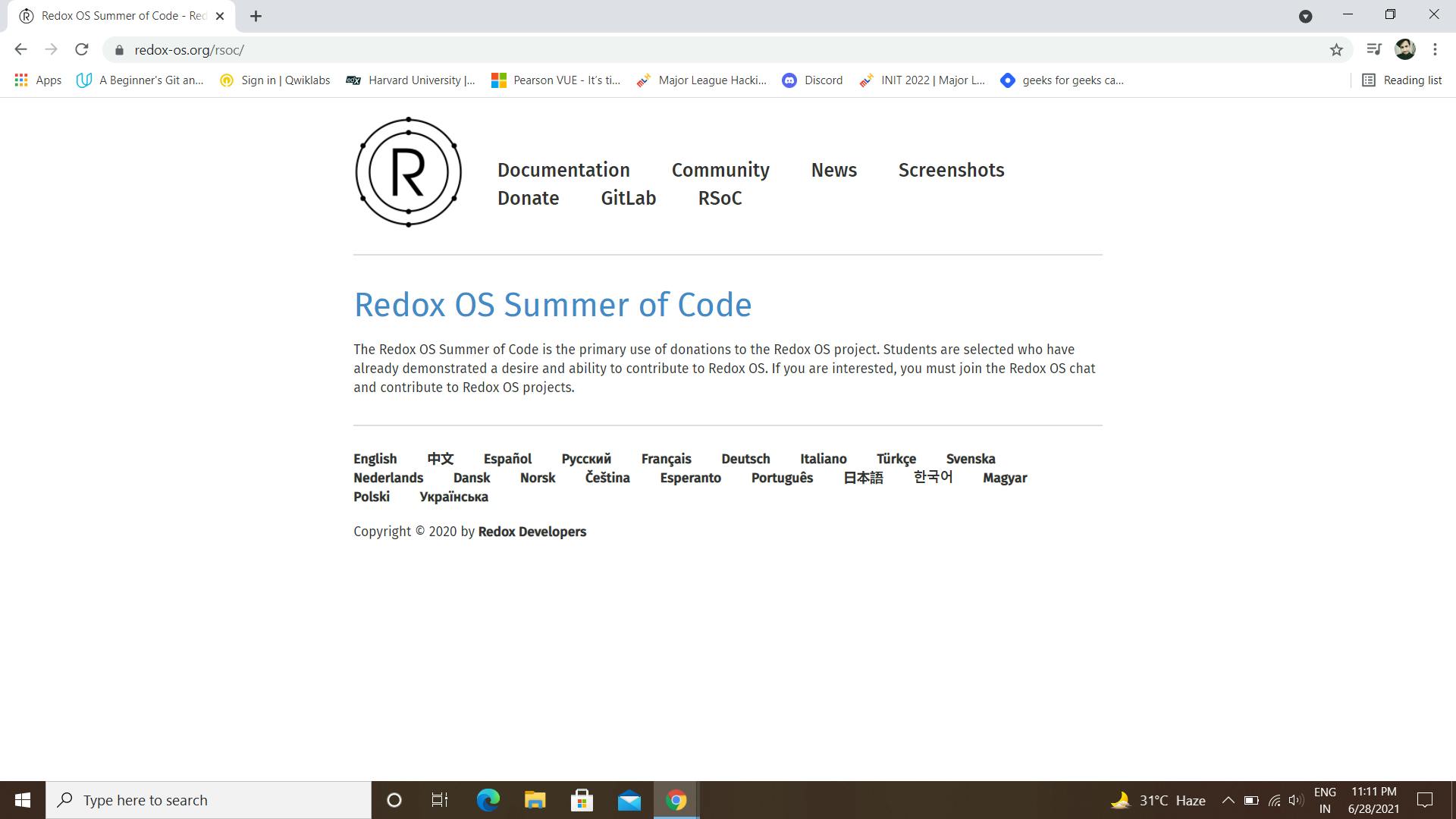
10- Hyperledger Mentorship Program:
If you’re into the blockchain, this is for you. You can contribute to Hyperledger. This mentorship program allows you to get practical exposure to Hyperledger open source development. Community members who are interested in mentoring students submit their project proposals so you can look and find your niche. You will be allotted mentors who are quite active in the Hyperledger developers community.
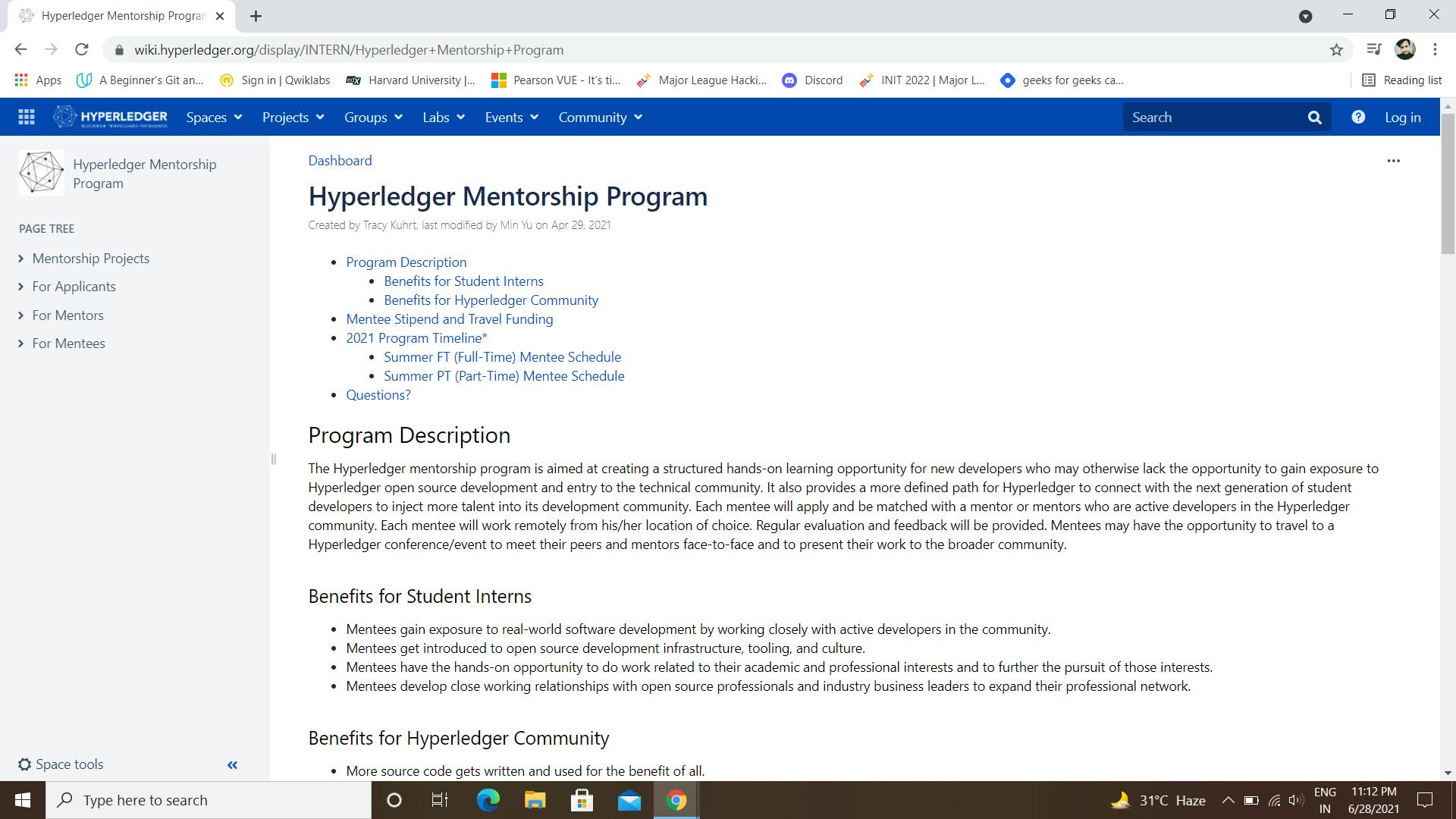
11- Digital Ocean Hacktoberfest:
Hacktoberfest is a really popular open-source program that is hosted by Digital Ocean and is open to everyone across the world. Here, you need to submit four or more quality pull requests and you’ll either get a chance to plant a tree or get a limited-edition t-shirt. The main idea over here is that there’s no such thing as selection criteria in this particular program. So, this is very useful for individuals, in particular, who are just starting out with open source. You can contribute to participating projects on GitHub and even if you’re not able to make a large major contribution what you can get out of it is how to use Git and Github.
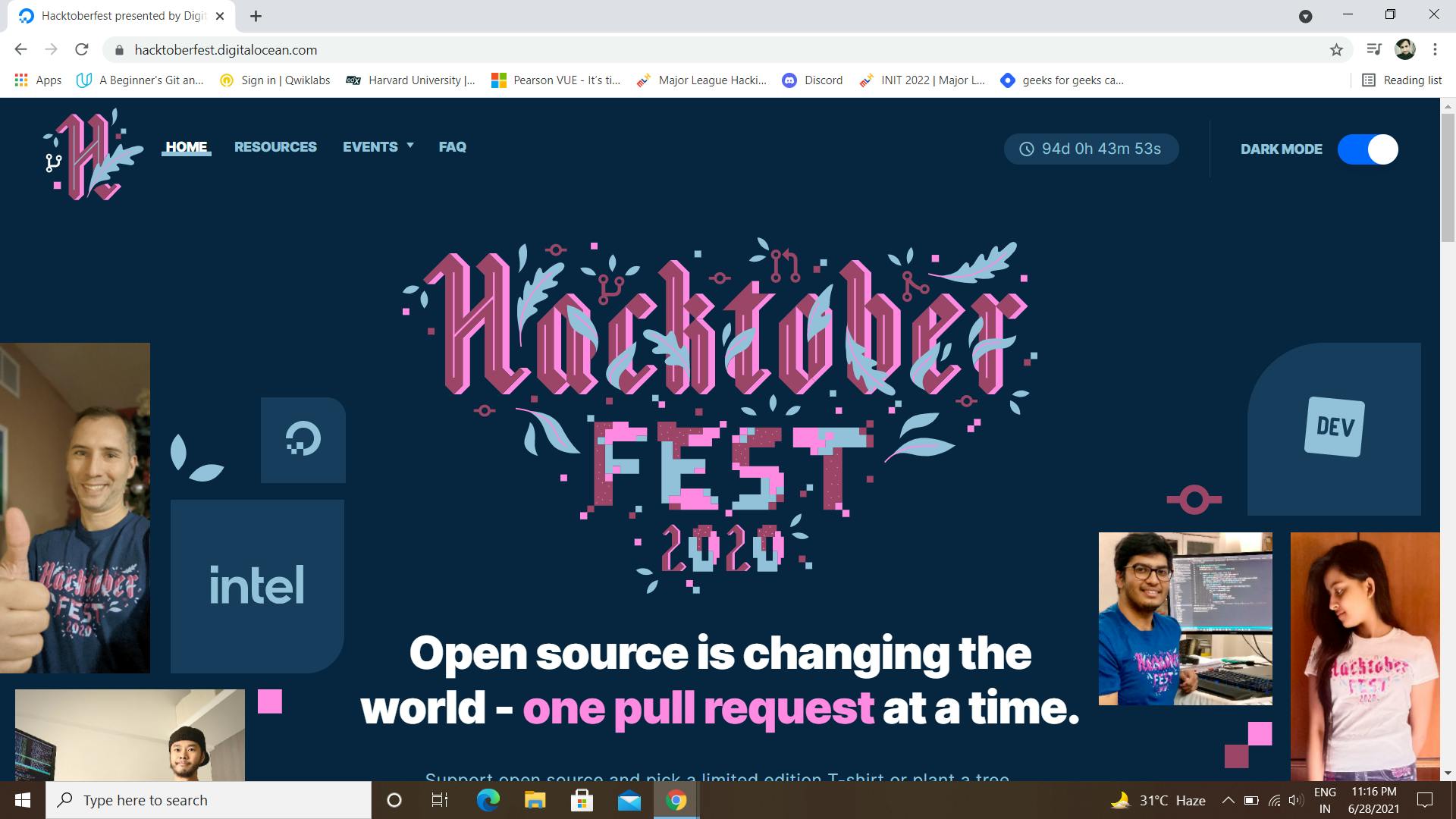
12- FOSSASIA Codeheat:
FOSSASIA is a non-profit organization supporting developers and makers of free and open-source technologies. FOSSASIA Codeheat is one of such programs run by it. Codeheat is a coding contest and here the mentors are developers, professors, or contributors who like to share and become a part of the FOSSASIA open source community. Codeheat is separated into two-month periods and after each period winners of the period are announced.
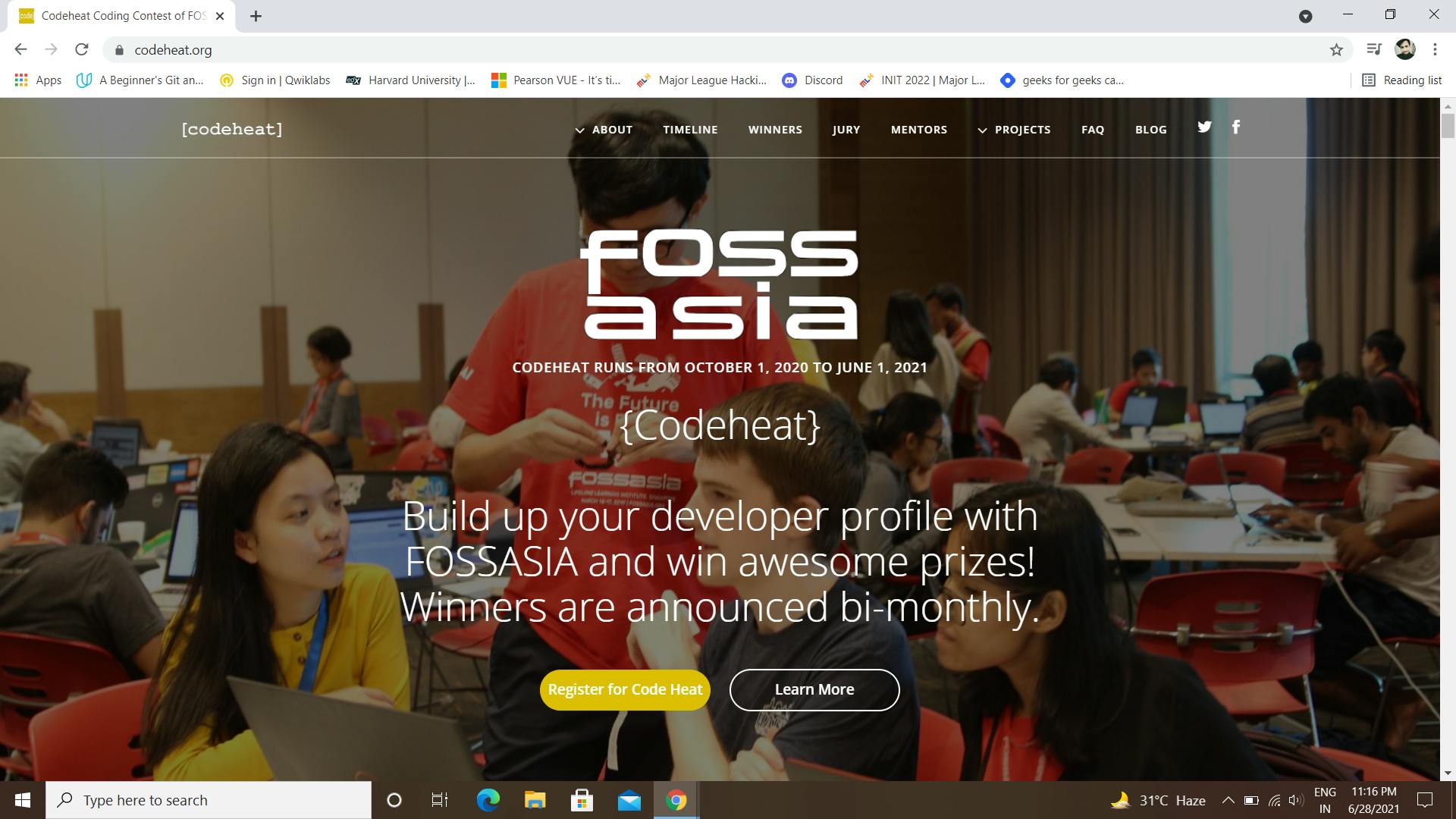
The End
I hope you found this article valuable. If yes do let me know in the comments 😊
